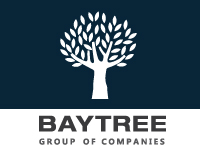CA
ON
싸인건설
전화: 416-909-7070
4065 Chesswood Dr. North York, ON
0.jfif)
캐나다 공인 컨설턴트 - 한인크레딧 컨설팅
전화: 416-897-8438
1 High Meadow Place, Unit 2 North York, ON

한인을 위한 KOREAN JOB BANK
전화: 6476245886
4065 Chesswood Drive Toronto, ON
.jpg)
고려 오창우 한의원
전화: 416-226-2624
77 Finch Ave W #302, North York Toronto, ON

K-포차 ...미시사가(만두향프라자)
전화: 905-824-2141
169 DUNDAS ST. E. #7 Mississauga, ON

1004열쇠
전화: 416-895-1004
4 Blakeley Rd. Toronto, ON

최고의 POS시스템 - 스마트 디지탈 POS
전화: 416-909-7070
4065 CHESSWOOD DR. NORTH YORK Toronto, ON
0.jfif)
준비된 바이어 그룹 , BAYTREE 이너써클
전화: 416-226-5999
7030 Woodbine Ave. Suite 103 Toronto, ON

변호사 정찬수 법률사무소
전화: +82 2-536-1144
서울특별시 서초구 서초동 Toronto, ON
1.jfif)
한인 시니어 탁구협회
전화: 647-209-8933
1100 Petrolia Rd Toronto, ON
4.jpg)
놀부 - 한식/일식/중식
전화: 416-221-4700
3 Elmhurst Ave, North York, ON

스마트 디지탈 프린팅 - 인쇄 및 디자인
전화: 416-909-7070
4065 chesswood dr. Toronto, ON
.jfif)
It would be a place where all the visitors including me share the life stories and experiences through their activities,especially on life as a immigrant.
Why don't you visit my personal blog:
www.lifemeansgo.blogspot.com
Many thanks.
블로그 ( 오늘 방문자 수: 4 전체: 267,567 )
박제된 고기 먹는데 안전-FDA확인.
lakepurity
2008-01-16
Cloned meat safe to eat, FDA says
LAURAN NEERGAARD
The Associated Press
January 15, 2008 at 1:06 PM EST
WASHINGTON ― Meat and milk from cloned animals is as safe as that from livestock bred the old-fashioned way, the U.S. Food and Drug Administration said Tuesday.
The decision removes the last U.S. regulatory hurdle to marketing products from cloned cows, pigs and goats, and it puts the FDA in concert with recent safety assessments from European food regulators and several other nations.
“The data show that healthy adult clones are virtually indistinguishable” from their counterparts, concludes the FDA's safety report.
For economic reasons, however, it will be years before many foods from cloned animals reach store shelves. At $10,000 to $20,000 per animal, they are a lot more expensive than ordinary cows. That means producers likely will use clones' offspring for meat rather than the clones themselves.
Cloned food safe, FDA says
The FDA says meat and milk from cloned animals is as safe as that from their counterparts bred the old-fashioned way
In addition, several large food companies – including dairy giant Dean Foods Co. and Hormel Foods Corp. – have said they have no plans to sell milk or meat from cloned animals, because of consumer anxiety about the technology.
With FDA's ruling, “If you ask what's for dinner, it means just about anything you can cook up in a laboratory,” said Carol Tucker-Foreman of the Consumer Federation of America, who pledged to push for more food producers to shun cloned animals.
The two main U.S. cloning companies, Viagen Inc. and Trans Ova Genetics, have already produced more than 600 cloned animals for U.S. breeders, including copies of prize-winning cows and rodeo bulls.
“We certainly are pleased,” Trans Ova president David Faber said, noting that previous reports by the National Academy of Sciences and others have reached the same conclusion.
“Our farmer and rancher clients are pleased because it provided them with another reproductive tool,” he added.
Food producers have voluntarily withheld cloned animals from the market pending FDA's decision, and it was not immediately clear Tuesday if that moratorium was ending immediately – or if other government agencies must weigh in first.
The ruling was long-expected – and mirrors FDA's initial safety assessment back in 2003 but is but highly controversial nonetheless. Debate has been fierce within the Bush administration as to whether the FDA should move forward, largely because of trade concerns. Consumer advocates petitioned against the move, and Congress had passed legislation urging the FDA to study the economic ramifications before moving ahead.
It was a day forecast since 1997, when Scottish scientists announced they had successfully cloned Dolly the sheep. Ironically, sheep aren't on the list of FDA's approved cloned animals; the agency said there wasn't as much data about their safety as about cows, pigs and goats.
By its very definition, a successfully cloned animal should be no different from the original animal whose DNA was used to create it.
But the technology has not been perfected – and many attempts at livestock cloning still end in fatal birth defects or with deformed fetuses dying in the womb. Moreover, Dolly was euthanized in 2003, well short of her normal lifespan, because of a lung disease that raised questions about how cloned animals will age.
The FDA's report acknowledges that, “Currently, it is not possible to draw any conclusions regarding the longevity of livestock clones or possible long-term health consequences” for the animal.
But the agency concluded that cloned animals that are born healthy are no different from their non-cloned counterparts, and go on to reproduce normally as well.
“The FDA says, 'We assume all the unhealthy animals will be taken out of the food supply,”' said Joseph Mendelson of the Center for Food Safety, a consumer advocacy group that opposes the FDA's ruling. “They're only looking at the small slice of cloned animals that appear to be healthy. ... It needs a lot further study.”